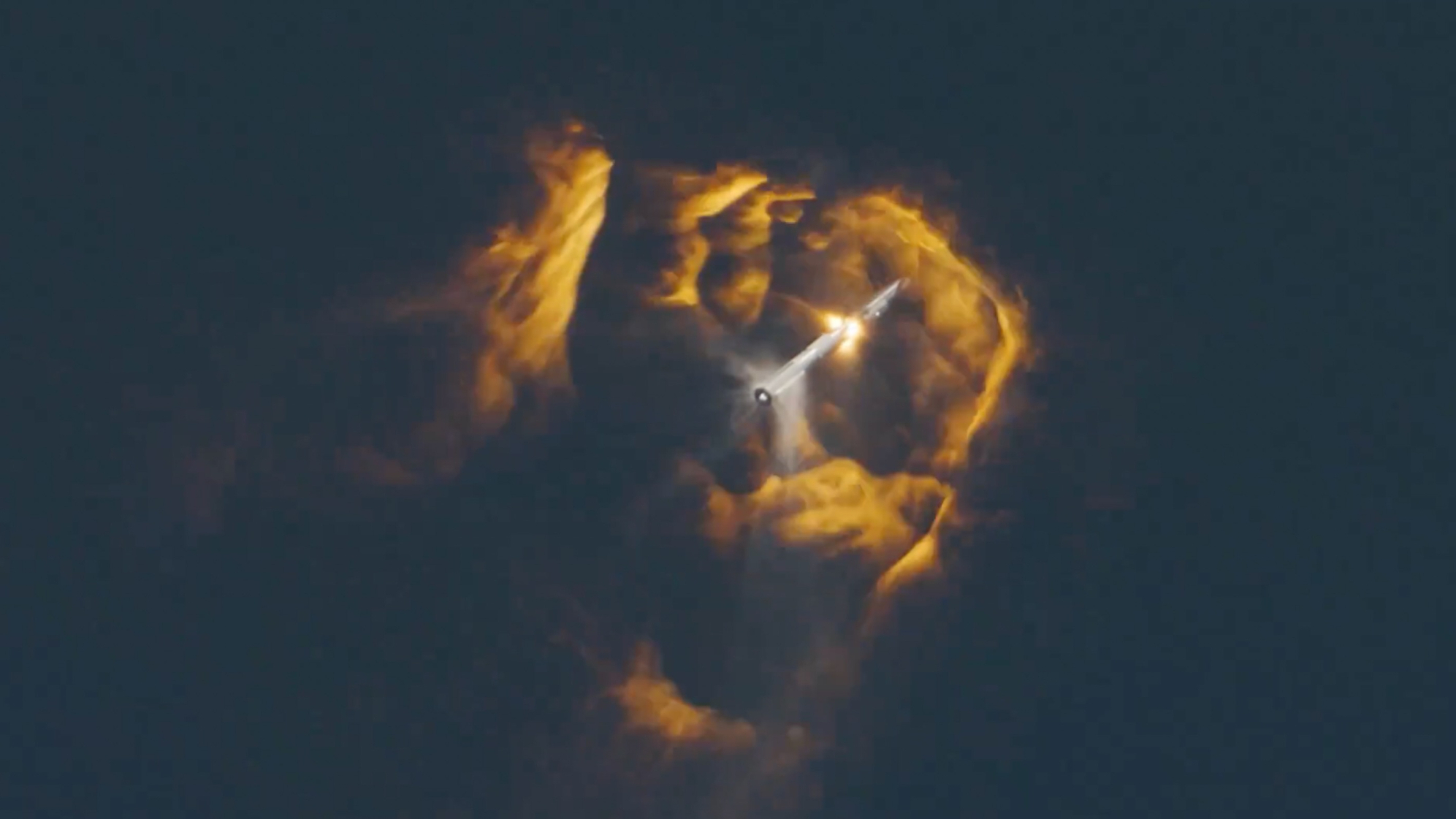
A new video captures the drama and excitement of the second-ever test flight of SpaceX's giant new Starship vehicle.
That drama included two massive explosions — the "rapid unscheduled disassemblies," in SpaceX parlance — of Starship's lower and upper stages, which occurred about four minutes and eight minutes, respectively, after the Nov. 18 liftoff.
The two-minute video, which SpaceX posted to X (formerly known as Twitter) on Dec. 7, doesn't shy away from the two blasts. Rather, it highlights them, punctuating the first with a shot of SpaceX founder and CEO Elon Musk smiling and high-fiving folks in mission control.
Related: SpaceX's 2nd Starship launch looks amazing in stunning photos and videos

Musk and other SpaceX personnel — who are seen celebrating en masse in other parts of the video — were happy because Starship notched some major milestones during the flight, which launched from the company's Starbase site in South Texas.
For example, all 33 Raptor engines on Starship's first-stage booster, called Super Heavy, did their jobs well, burning for the required 2.5 minutes or so. And Super Heavy separated successfully from the upper stage, which ignited its Raptors on schedule as well.
Starship didn't hit either of those marks during its debut flight, which launched from Starbase on April 20. A handful of Super Heavy's Raptors conked out early that day, and the two stages failed to separate, causing SpaceX to detonate the tumbling vehicle intentionally about four minutes after liftoff.
The April 20 launch also did considerable damage to Starbase's orbital launch mount, blasting a big crater out beneath the structure. SpaceX installed a water-spewing steel plate to protect the mount going forward, and the fix was effective; the mount made it through last month's launch pretty much intact, company representatives said.
Both of these test flights aimed to send Starship's upper stage most of the way around Earth, culminating with a splashdown in the Pacific Ocean near Hawaii. Super Heavy, meanwhile, was supposed to come down in the Gulf of Mexico, off the Texas coast. But full success isn't usually expected on test flights, especially when the vehicle involved is the biggest, most powerful rocket ever built.
SpaceX is now gearing up for Starship's third flight, which could occur in a matter of weeks, provided the paperwork comes through. The U.S. Federal Aviation Administration, which grants launch licenses, is currently overseeing an investigation into what happened on the Nov. 18 mission.
SpaceX sees Starship helping humanity settle and moon, Mars and other worlds beyond Earth. NASA buys into that vision; the agency selected Starship as the first crewed lander for its Artemis program of lunar exploration.
If all goes according to plan, Starship will carry astronauts to the moon's surface on the Artemis 3 mission, which NASA aims to launch in late 2025 or 2026.







